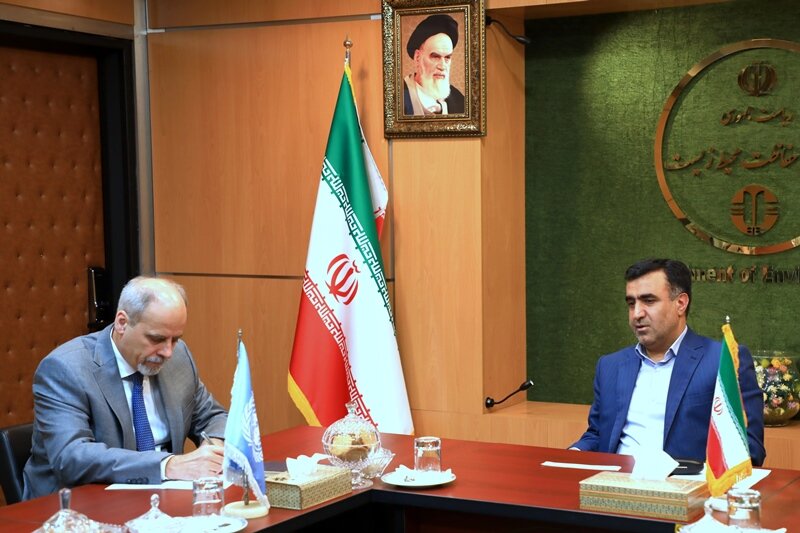Environmental protection is a priority for cooperation with Iran: UN rep

TEHRAN - Stefan Priesner, the United Nations Resident Coordinator for Iran, has said the issue of environmental protection is a priority for cooperation with Iran.
According to the program under the agreement between Iran and the United Nations, the environment is one of the priorities for cooperation and efforts are being made to establish good cooperation in this field, he added.
He made the remarks in a meeting in Tehran with Ali Salajeqeh, the head of the Department of Environment.
Following up on environmental issues, including climate change, protecting biodiversity, and dealing with air pollution, is given serious attention by the Secretary General of the United Nations, Priesner stressed.
Salajeqeh, for his part, referred to holding the international conference on dealing with sand and dust storms that is due to be held in September in Iran as a great opportunity to use the experiences and maximum participation of other countries and international organizations in managing and reducing the effects of this problem.
He touched on cruel sanctions against Iran, saying that the United Nations should use international capacities such as environmental conventions to help the country fulfill commitments in climate change, biodiversity, waste management, and so on.
In February, Salajeqeh said that based on the successful experiences of the Islamic Republic of Iran in the field of combating sand and dust storms, the United Nations introduced Iran as the host of the international conference on combating sand and dust storms, IRIB reported.
Arrangements have been made with the Ministry of Foreign Affairs and this meeting will be held in Tehran with the presence of the environment ministers of the world countries, Salajeqeh said.
In the field of diplomacy, the Department of Environment has held meetings with neighboring countries to the extent that Egypt has also announced its readiness to attend the Tehran meeting, he highlighted.
He pointed out that a delegation from Iran will travel to Iraq in the near future to discuss the issue of sand and dust storms in order to make decisions to deal with the problem.
On April 26, Salajeqeh said the Department of Environment will hold five international meetings in the current Iranian calendar year that started on March 21.
“At least five international meetings will be held this year, one of which is the conference on combating sand and dust storms,” he added, IRNA reported.
One of the approvals of the regional meeting of environment ministers, which was held in Iran last summer, was the establishment of a regional dust organization, he highlighted.
“Environmental diplomacy is the main priority for the country's political diplomacy, so holding the conference on combating sand and dust storms is important for us.”
So far, 11 meetings of the national headquarters for policymaking and controlling dust storms have been held and the results of these meetings should be evaluated and made public, he stressed.
In July 2022, Tehran played host to a conference of ministers and officials from 11 countries, aiming to boost cooperation for resolving extant environmental problems, especially sand and dust storms.
Environment ministers of Iraq, Armenia, the United Arab Emirates, Oman, Syria, and Qatar, as well as deputy ministers of Azerbaijan and Turkmenistan along with delegations from Turkey and Uzbekistan, participated in the event which was held with the theme of “Environmental Cooperation for a Better Future.”
The SDS phenomenon has been plaguing the country for several years and has caused problems in many provinces.
According to studies, eight large sand and dust storm hotspots stretching to 270 million hectares in neighboring and Persian Gulf countries are affecting Iran.
Regional maps show that Saudi Arabia produces the highest level of particulate matter, followed by Iraq, Syria, Kuwait, and the UAE, respectively.
A ten-year plan has been prepared to curb internal sources of sand and dust storms.
Letizia Rossano, the director of the Asian and Pacific Centre for the Development of Disaster Information Management (APDIM), said in June 2022 that Iran is really at the forefront of understanding the problem of sand and dust storms as well as dealing with it.
More than 80 percent of the entire populations of Turkmenistan, Pakistan, Uzbekistan, Tajikistan, and the Islamic Republic of Iran are exposed to medium and high levels of poor air quality due to sand and dust storms," she noted.
MG
